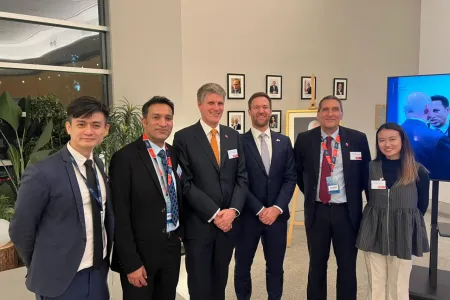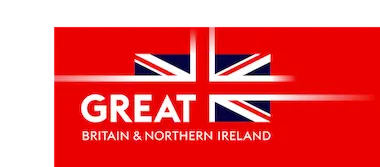
Delegates from across the world gathered in the capital to discuss challenges and innovations across the maritime sector at London International Shipping Week (LISW) 2025.
Coinciding with a £1.1billion government maritime sector boost, seafarer skills, biofuels and maritime security were hot topics at London International Shipping Week 2025 (LISW25).
The landmark event, which was held at venues across London on 15-19 September, delved into evolving challenges and innovations in global shipping, demonstrating London’s role as a world leading global maritime hub.
With the Maritime and Coastguard Agency (MCA) playing a prominent role in proceedings, the week-long agenda reflected a sector in transition through clean maritime innovation, training, digitalisation and alternative fuels.
More than £700million of private investment in major UK ports was celebrated, with an additional £448million of public funding aimed at reducing UK domestic shipping emissions through Department for Transport’s UKSHORE programme.
The Department for Transport’s Clean Maritime Day, which took place on Thursday 18 September, also played into the event, as MCA Chief Executive Virginia McVea spoke about the role of regulation as an enabler of maritime innovation.
Keynote speaker and MCA Chair Lord Simon Stevens also joined Maritime London’s Shipping Risk Forum to discuss future fuels and grey zone conflict challenges.
Several industry panels examined the future energy landscape, with wide-ranging debate on biofuels, Liquified Natural Gas (LNG), wind propulsion and nuclear power. The discussions included questions regarding new investment in sustainable maritime technologies and regulatory clarity.
Investment pitches from pioneering IT and fuel technologists reflected growing momentum from sector innovators, while dedicated sessions on seafarer training development and wellbeing explored opportunities and challenges for next generation maritime professionals.
Forums hosted by leading bodies including DNV, Lloyd’s Register, and SMI Autonomy tackled supply concerns, underscoring the importance of autonomous supply chains, and the collaborative approaches needed across industry to strengthen resilience.
Significant announcements made during LISW included new UK government backing for advanced nuclear maritime applications and plans for a potential US/UK nuclear shipping corridor, setting the stage for future transatlantic cooperation.
Concluding the event in the morning, the NorthStandard Breakfast focussed on ‘Facing the Future’. Chaired by Mike Salthouse, Head of External Affairs at NorthStandard, the session looked at shipping industry challenges and successes around current and emerging security threats, the impact of a changing global order and a drive to eradicate greenhouse gas emissions.
During the week’s closing Gala Dinner and Reception, International Maritime Organization (IMO) Secretary General Arsenio Dominguez delivered his keynote address, calling for international collaboration to tackle greenhouse gas (GHG) emissions in shipping.
Lars Lippuner, Director of UK Customer Maritime Services at the MCA and a member of the LISW Steering Group, was actively engaged throughout the week, from the opening of the London Stock Exchange to the closing LISW Gala Dinner Reception.
Reflecting on the event, Lars said:
“It’s been a pleasure to attend and support LISW this year. The event truly showcased the strength of innovation and collaboration across our sector, from clean fuels and digitalisation to seafarer wellbeing and international partnerships.
“It clearly reinforces the UK’s world-leading role as a maritime partner in maritime excellence and its unwavering commitment to a sustainable future for shipping.”





